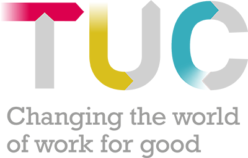Our membership within the Royal College of Midwives consists of a very specific workforce – midwives and maternity support workers, and there’s a clear pathway into that workforce through midwifery students. We’re lucky to have the opportunity to engage and recruit them throughout their course and before qualification; however some work needed to be done to retain members at their early career stage.
There are several key things we wanted to achieve with our project:
- Membership retention – focus groups have shown that members don’t feel as well supported in the first few years of their career, this leads to us seeing a slight drop off in membership at this stage.
- Member engagement – we tend to have lower union engagement with our newly qualified midwives, with few of them getting involved in their union branches or taking up active rep roles.
- Accurate data – the last NHS pay ballot we ran exposed an issue with our data for newly qualified midwives – lots of members in that stage still held their university as their employer or hadn’t updated their email addresses since their university email addresses. This throws up challenges both in having accurate balloting data, but also in being able to contact these members.
The Trade Union Act ballot thresholds are difficult for all unions, and we narrowly missed the threshold last year, so anything that we can do to improve our industrial strength is really a priority, to be ready for the future.
The 2023 graduating cohort was also particularly important to retain and support, as they had to deal with the particular challenges that studying and practicing during COVID threw up.
The project
We decided that late summer, when most students were graduating and taking up their first employment, was the ideal time to get in touch with them.
We knew that email communication wouldn’t be enough to effectively reach each member, because of how mobile and often physically overworked our members are. So we decided to try contacting them by peer-to-peer texting, using the ThruText platform. We dedicated a specific day to the newly qualified conversion campaign in August, so we could build some momentum and all come together to work on the campaign.
We created campaigns to message every student midwife set to qualify this summer, if they had provided us with a phone number. In the end, that was about 2, 200 members, 6% of our entire working membership.
We had around 10 staff come together for the day, prioritizing members of the professional team of the organisation, who would have good insight into these members’ daily lives, but rarely had the opportunity in their roles for this direct contact with members.
The messages moved through a few themes:
- The initial message was really positive, congratulating them for graduating and becoming a qualified midwife.
- Then we asked them if we could take the opportunity to get their membership data up to date.
- We also asked if they’d already secured employment and what workplace and employer they would be working with.
- And then we told them we would keep them on their student membership rate for a further three months as a thank you for updating their info.
We built in custom fields in ThruText, to correspond to the data we held for each member, for their home postcode and their email address. This let us automatically personalise texts, so all the staff had to do was choose the recommended reply for updating contact details, and it automatically asked the member: is [email field] still the best email for you, and are you still living at [postcode field]?
This really quick text message exchange meant we now had their up-to-date email, up-to-date postcode, and we knew what their workplace and employer was, which is all the details that we may have been lacking.
Then we gave staff a bit of freedom to take the conversation where they wanted to and make it a little bit more personal. That could have been some signposting to other support we have available, or just a friendly conversation that the member will remember and will mean something to them.
We also put together physical packs that we posted out to each member we spoke to, with a guide to this next stage of their careers, a congratulatory letter from our general secretary, and a postcard with QR code links to encourage them to get more involved in the union.
We also really wanted to cement the idea that the conversations members were having were with real people, so we encouraged the staff doing the texting to write short, personal handwritten notes for those packs. Wherever possible, we’d matched up staff members doing texting with the universities they had attended themselves, or we had a team member from the education team for instance, who was messaging students she had potentially taught in their course. I think that made a really big difference to it being a personal experience, and helping members see the union as more than a faceless organisation.
What happened?
In the end we entered into conversations with nearly half the members we texted – an average 45% response rate, which is much higher than we’ve previously seen with members at this stage of their careers. Almost 10,000 individual text messages went out to the group. We updated nearly 800 member contacts and employer details – a huge 40% of the cohort and we prepared and sent out 300 packs with handwritten notes.
While most of the interactions happened on the one day, a few of us carried on monitoring the conversations in the weeks later as well, just to make sure we weren’t missing any opportunity to engage with these members.
What’s next?
In the future, we hope to use this project as even more of an organizing tool, bringing in activists to do the texting. Getting our union learning reps involved would be great, so they can text the newly qualified midwives going into their actual workplaces, welcome them and make initial contact.
In the end, the campaign didn’t just inform us of the detail changes we expected. We also heard lovely stories about pregnancies, gap years, remarkable course achievements and job offers, to name a few. And we were able to point members that needed extra support in the right direction, as well as drum up lots of excitement and enthusiasm for being involved in their workplace union branches.
All of this, as well as the hundreds of grateful messages we received, really made it a worthwhile experience for everyone involved.
This was the first time we’ve done anything like this, and it’ll be difficult to tell the exact overall impact it will have. But from the stats we can see, we can infer this project will make an impact on not only member recruitment and retention, but member engagement, activism, and later down the line potentially our industrial strength as we’ll have stronger data going forward.
Guste Matuleviciute is Organiser for the Northern region at the Royal College of Midwives.

